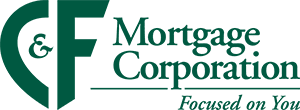You often hear the term ‘down payment’ when buying a house, but there are a few other expenses you should prepare for as you embark on your home buying (or selling) journey. One such expense is called closing costs – these are fees that will be paid along with your down payment or agent commissions when closing on a home. Below, we’ll give you the 411 on closing costs and what you can expect during a real estate transaction.
What Are Closing Costs?
Closing costs are lender fees that cover items such as your application fee, appraisal, attorney fees, and more. These costs come in addition to any down payment and agent commissions (if you’re the seller) that you’ll bring to the closing table. If you’re the home buyer, you can sometimes negotiate closing costs with the seller before closing to reduce the amount you’ll pay out of your pocket.
What Closing Costs Are Included?
There are quite a few closing costs shared between buyers and sellers in a real estate transaction. They include:
● Property Costs – Appraisal, inspection, escrow fees, property taxes, HOA assessments (if applicable)
● Loan Costs – Attorney fees, loan interest, lender fees, origination fee, prepaid interest, title search, discount points (if applicable)
● Other Fees – Lender and title insurance, private mortgage insurance, loan fees (for VA, FHA and USDA loans)
How Much Are Closing Costs?
Your closing costs are variable and are based on the total amount of the home sale. Generally, as a buyer, you can expect closing costs to be between 2-5% of the purchase price. For a $300,000 home, this would mean your closing costs may range from $6,000 to $15,000.
During the mortgage process, your lender will give you a Loan Estimate, which will break down all of the expected costs of the transaction in detail. This estimate will list fees that are required, some of which you can shop around for to find the best deal. These include things like a title search, title insurance, homeowners insurance, and a notary, among others. Others, such as the origination fee, are not variable and will be determined by your lender. Your lender may be able to offer a lender credit to help offset the closing costs to be paid at closing – please inquire with your loan officer.
Who Pays What?
It may seem confusing to identify who pays what when it comes to closing costs, but it’s pretty straightforward. The home seller is generally responsible for agent commissions and prorated taxes, along with a home warranty, if applicable. The buyer will have all of the mortgage origination fees, as well as things like the appraisal, home inspection, title fees, credit reporting, and more. Closing costs are negotiable between buyer and seller, so your responsibility may vary depending on the deal you work out.
Fortunately, you’ll receive a loan estimate early on in the home buying or selling process, so you’ll have a clear understanding of the costs associated with the home sale.
No matter where you are in your home buying journey, C&F Mortgage is focused on you and ready to guide you through the process. Get in touch with one of our local industry experts today to learn more!

